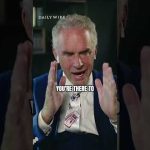In recent days, one topic has stirred up plenty of conversation and even a few raised eyebrows: healthcare. A spirited discussion highlighted a fundamental disagreement about what healthcare should be and what it truly means for society. It seems that some folks believe that healthcare is a “human right,” which sparks a flurry of ideas about who should pay for what and if real “free” healthcare can even exist.
At the heart of the debate is the notion of “free healthcare,” also known as universal healthcare. Supporters argue that all individuals deserve access to medical services without the burden of payment at the point of care. However, this well-meaning idea leads to a series of tough questions that often get swept under the rug, like what exactly qualifies as healthcare. Is a visit to the doctor for a cold included? What about cosmetic procedures like breast augmentation or even acupuncture sessions? If everything is on the table, it raises the real concern: should taxpayers foot the bill for these kinds of services?
Some argue that if the concept of healthcare includes this broad range of services, then society may find itself “paying for massages and lifestyle choices.” When we consider how much tax one pays, particularly wealthy individuals like doctors or tech moguls, one starts to wonder: What happens if tax rates get too high? As one side of the debate suggested, a whopping 65% tax rate on high earners could leave a mere fraction of their income to take home. The real kicker is that once local, state, and federal taxes stack up, it becomes a daunting proposition for those who have worked hard to earn their wealth.
The dissent here is profound: many argue that our healthcare system does not suffer from being underfunded, but rather from being supported by a bloated government that often mismanages funds. The focus should shift to fostering a thriving private sector where healthcare can be delivered more efficiently and effectively. After all, who wants to keep fueling a system that leads to a “government-dole” culture where dependency is the norm rather than empowerment?
Those wary of the “free healthcare” model often point to the pitfalls seen in programs like Medicaid and the Department of Veterans Affairs, which have had their fair share of struggles in delivering timely care. Instead of expanding the scope of government support, there is a growing call to minimize reliance on such programs and to encourage individuals to earn their way without excessive government intervention. The consequences of socialized healthcare could, some argue, be a recipe for disaster, stripping away the very foundation of personal accountability.
While spirited debates like this one are never dull, they do highlight a crucial element at the core of America’s ethos: the pursuit of freedom and the importance of personal responsibility. As discussions about healthcare continue to evolve, both sides must consider the underlying implications of their beliefs and how they affect the fabric of society. After all, healthcare may be a vital concern, but so too are the principles of faith, family, and freedom that guide the American narrative.




